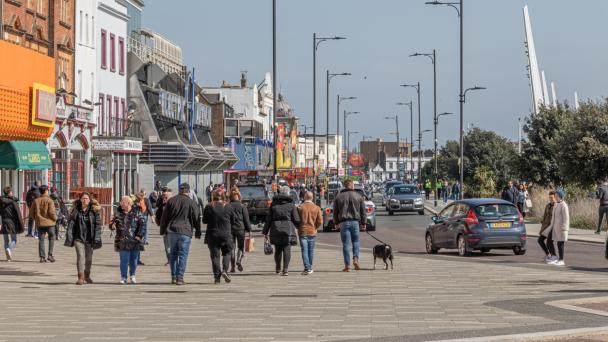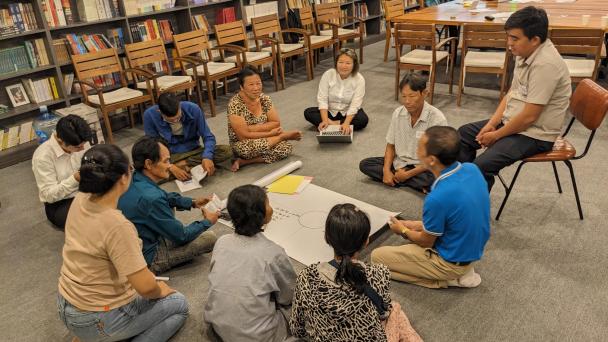Public priorities around effective governance of new devolved areas


In December 2024, the UK Government unveiled its plans to decentralise power, publishing the English Devolution White Paper, to support select areas in accelerating their move towards devolution.
For this wave of NatCen’s Society Watch series, our Centre for Deliberation convened a workshop with 31 Sussex residents to explore how they wanted their new combined authority to function, and to test a model for how further devolution deliberations could be carried out. Residents deliberated on the White Paper and its implications for local authority powers and accountability.
In March 2025, the National Centre for Social Research (NatCen) conducted a deliberative workshop with residents of Sussex to discuss the Government's English Devolution White Paper and its implications for local authority powers and accountability, taking on board information from subject specialists. Sussex was selected as a case study because it’s due to experience some of the biggest changes, going from very low levels of devolved power to the creation of a new combined authority.
This research into attitudes towards devolution provides several valuable insights for the UK Government to consider in rebuilding and reforming local government. While some of the feedback is specific to Sussex, there are points relevant to other areas of the country. For instance, public accountability over new Mayors and local governance must be a priority and should be established in advance of the Mayoral Elections in the six new devolved areas in 2026.
Participants wanted the authority to focus these powers on:
Residents identified the same following policy areas as central to the growth agenda:
Our Centre for Deliberation convened a day-long workshop with 31 Sussex residents broadly reflective of Sussex’s demographic and attitudinal diversity. The aim was to explore how they wanted their new combined authority to function, and to test a model for how further devolution deliberations could be carried out.
We designed the workshop so that participants heard from subject experts, as well as one another, and supported them to develop their understanding of devolution, and engage in productive discussions.
Time was relatively short for this deliberation – just a single day-long workshop. Thus, additional deliberative exercises could usefully be run to confirm and deepen the findings outlined in this report.
At NatCen, we believe the best way to engage the public on complex topics like devolution is through deliberation. By providing people with time and relevant information, and by allowing them to engage carefully with their peers and experts, the public can arrive at considered viewpoints.




Receive a regular update, sent directly to your inbox, with a summary of our current events, research, blogs and comment.
Subscribe